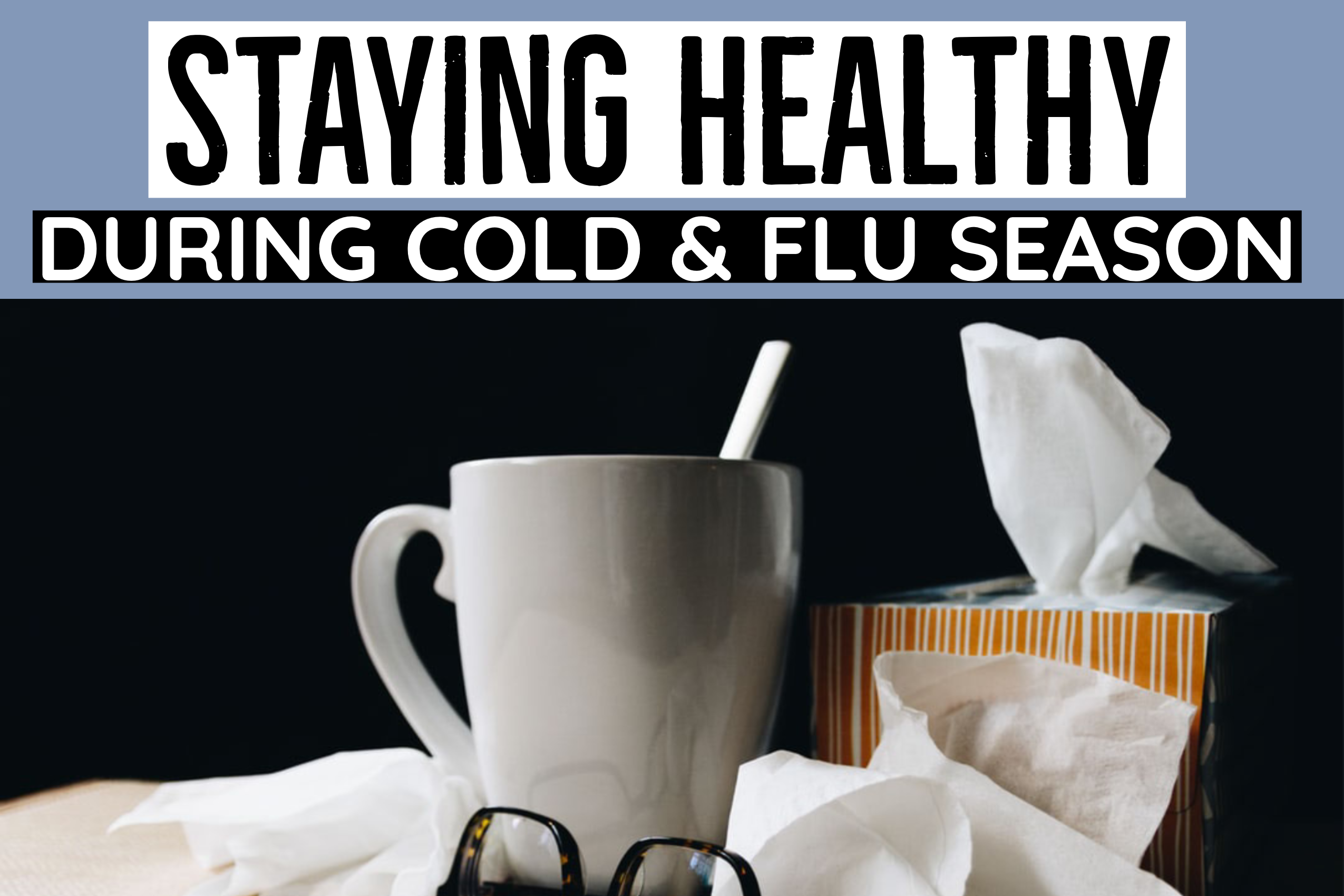
It’s that time again! Cold and flu season – aghhh! So how do we stave off those nasty symptoms? Can we be proactive? Well, sometimes there is no avoiding it, but if you take the following precautions and follow some simple lifestyle suggestions, you can increase your chances of NOT getting sick.
Keep Warm. Being out in the cold does not cause a cold, but shivering depresses the immune system, and this makes us more likely to catch colds. Also, lower levels of sunlight during late fall and into winter can alter levels of hormones such as melatonin and serotonin, which negatively affect how the immune system works. Dress appropriately in cold damp weather and remember that we lose up to 30% of our body heat through our heads, so wearing a hat when it’s cold is a good idea.
Wash Your Hands Often. Germs can be transmitted by physical contact or through the air when someone sneezes. Most effective is washing hands with soap and water often and drying them on disposable paper towels (or laundering hand towels regularly). This significantly reduces the chance of catching a virus, especially rotavirus, which tends to infect children and causes vomiting and diarrhea. The use of hand sanitizers is also effective. Make sure they are 60% to 80% alcohol if you are using alcohol based.
Damp Weather. Germs survive longer during wet weather. They hang in the air attached to water droplets, and if there is no breeze to blow the germs away, they linger longer.
Moderate Your Alcohol Intake. Research has shown that consuming excess alcohol can tamper with your immune system by slowing it down, making bacteria‐fighting white blood cells sluggish and much less efficient. This can occur even with just one binge drinking episode. On the other hand, light or moderate drinking has not been shown to be harmful and can even be beneficial. (For some people, for instance – women who may be pregnant, people with certain health conditions, alcoholics, and people who need to be sharp (drivers, etc.) no amount of alcohol is considered beneficial.)
Crowding Together and Central Heating. During the cold months, people are in closer proximity to each other because they are indoors. This makes it far easier for infections to be passed around. In addition, central heating can be very drying to the protective mucous in our nasal passages, which reduces our defenses and aggravates conditions such as asthma. A humidifier can help.
Zinc and Garlic. The mineral, zinc, can help fight colds and provide a boost to your immune system. Good food sources include meat, oysters, eggs, seafood, tofu, black-eyed peas and wheat germ. Zinc and Vitamin C together are great for when you have a cold. Garlic can help ease chest complaints, and small amounts taken daily may also reduce the frequency of colds and flu.
Elderberry. Teas and syrups made from the elderberry plant have been used to fight upper respiratory infections for hundreds of years, and though it’s not official, there have been studies that show it works. In one randomized study of 60 adults with flu symptoms, those who took 15 ml of Sambucol brand elderberry syrup 4 times a day saw their symptoms clear up four days earlier than the group that took a placebo. To note: we here at OAI, have all used and continue to use Sambucol syrup and lozenges with positive results. It’s not a cure, but it has helped considerably most of the time.
Stay Hydrated. Doctors recommend we drink about eight glasses of water a day to stay healthy. Water helps the kidneys function properly and flushes out the toxins that accumulate in our bodies.
Make Sleep a Priority. Lack of quality sleep makes us more prone to infection. Studies show our T‐cells go down and our inflammatory process goes up.This could potentially lead to a greater risk of developing a cold or the flu. Sleep deprivation suppresses immune system function.
Exercise Regularly. Regular moderate exercise increases lymphocytes in the bloodstream, which help your bodies scavenge foreign invaders such as bacteria and viruses. Regular exercise can keep these soldier cells working hard at protecting us from infection for several hours after your workout, but if you exercise too much, it can lower the number of protective cells.
Not Eating Enough Fruit and Vegetables. First off – you will benefit greatly from eating enough fruit and vegetables daily (5‐7 servings minimum), but if you are not eating enough fresh or frozen fruit and vegetables, taking a daily multivitamin is especially important in the winter when you may be at greater risk for infection. In addition, probiotics are friendly bacteria in our intestines and are recognized for their importance in maintaining a healthy digestive system AND improving the body's natural defense mechanisms.
Adapted from:
http://www.dailymail.co.uk/health/article‐86521/Ten‐ways‐avoid‐colds‐flu‐winter.html#ixzz2BlCbuWrT
http://www.webmd.com/sleep‐disorders/excessive‐sleepiness‐10/immune‐system‐lack‐of‐sleep
https://www.cdc.gov/alcohol/fact‐sheets/moderate‐drinking.htm
